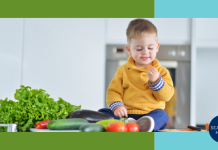 “Mommy, are you frustrated?” My earnest three year-old inquired, as she studied my face. Tears welling up from the corners of my eyes, I gently blew into a tissue to buy time. I needed a minute to plan my response. How do you explain grief to a toddler?
“Mommy, are you frustrated?” My earnest three year-old inquired, as she studied my face. Tears welling up from the corners of my eyes, I gently blew into a tissue to buy time. I needed a minute to plan my response. How do you explain grief to a toddler?
Loss.
Just five days prior I had received the gut-wrenching call I knew would come. My uncle, who had been battling stage 4 Pancreatic cancer for over five years, had passed. I was heartbroken. My uncle had been such an important influence in my life and gave the encouraging nudge I needed during some of my hardest years. He embodied courage, determination, and passion. He loved to argue, but he also loved to give, and he did both with his entire being. A lawyer, husband, father, uncle. He would be deeply missed.
Curiosity.
So here I sat, opposite his open casket while my toddler tried to make sense of it all from the comfort of my lap. She wanted to see his perfectly poised, waxy face, somehow knowing that life had escaped his body. She wanted to get a closer look but not too close; this was not the Uncle B she knew. He was too quiet. Too still. So again she asked the easier question: “Mommy, are you frustrated?”
The trained psychotherapist in me responded first: “no honey, I’m sad.” Good, I thought. Labeling emotions; that’s a good start. But obviously, the inquisitive toddler in her wasn’t satisfied. “Why?” She pushed.
Honesty.
Again, my inner therapist focused in. But this time the mama in me unleashed a more imperative perspective…honesty. “I’m sad because Uncle B died, honey. I loved him very much and I am going to miss him” I shared.
“Died?” She offered. “What is died?” Her grammar might still be a work in progress but her cognitive thirst to understand the world around her? Spot on.
Thinking back to my child development courses, I knew I had to be cautious about explaining his illness. Labeling him as simply “sick” might cause excess anxiety over her next encounter with the common cold. Similarly, oversimplifying his death as a state of sleep would also confuse her notions of slumber. Therapist or not, I knew that honesty, again, was going to be the best approach.
…So I was honest.
“Uncle B was very sick. Not like a cough or a sneeze” I attempted to explain. “A sickness that hurt his whole body and made him very weak. When people get that sick, their bodies stop working.” I had no idea whether or not this was the right thing to say. But in the moment, it was the only explanation that I could offer to my three year-old. “I’m sad,” I continued, “I’m sad because I am going to miss him a lot, and it’s hard to say goodbye to the people that we love.”
In innocent meditation, I watched as she twirled her fingers in her hair. She began singing softly to herself, all the while eyeing the strangers dressed in black, clasping tissues and gingerly touching the lapel of the starched sport coat as they passed my Uncle. Her curiosity had been satiated, for now.
Modeling grief is, actually, quite healthy.
I couldn’t hold back the tears, and for once, I didn’t feel the need to. Through her eyes, I recognized my own version of confusion and fear. Why did cancer prey on him? Why is death so frightening? I don’t know that I will ever understand that. What I do know is this: my daughter needed to witness death and grief, even if it meant simply observing. The older that she gets, life will afford her more opportunities to build on her experiences with loss. As her mother, it’s my responsibility to help her better understand that, however imperfectly I teach her.
Looking back now, I know that it was okay for her to see me cry. It was okay for her to see me sad. I take comfort in this because someday, she will understand that being sad, especially after losing someone you love, is an appropriate response. Explaining grief to a toddler isn’t easy, but then again, what in life is?
How have you shared your feelings of grief with your children? Share in the comments.










